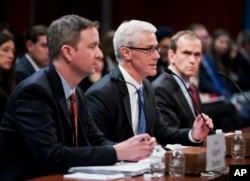A trial change to the Facebook news feed in Cambodia and other small countries is stirring criticism of the U.S. tech giant, which champions interconnectivity and openness, but is famously opaque when it comes to how its own product makes critical decisions about information sharing.
Their rollout of dramatic trial changes to the news feed in Sri Lanka, Bolivia, Serbia, Guatemala and Cambodia in mid October has been handled no differently - with rattled content producers still unaware even of if or when it will end.
The only real source of information is a blog post from the head of their news feed - Adam Mosseri, with the company declining media requests for a two-way dialogue to date.
“We always listen to our community about ways we might improve News Feed,” he said in the post late last month lamenting misconceptions some had about the experiment - which was dropped on users in the six countries without warning.
Why Facebook implemented this trial in the middle of a crackdown on independent media in Cambodia or whether it will continue into the election campaign next year remains a mystery.
“There was no advanced notice, it just suddenly changed, it shocked them and even me. We just understood recently that there is a separation of feeds between Facebook accounts and Facebook pages,” said Nop Vy, media director at the Cambodian Center for Independent Media, which runs the radio news channel Voice of Democracy.
The changes essentially banish content posted by official pages - for instance media outlets, NGO's and businesses - from users news feeds and sends them into an extremely obscure "explore feed" - unless the page owners pay to have their content put back.
It’s been left to the public to speculate why an experiment with such radical consequences was begun in a country like Cambodia, which is in the midst of a political crackdown in the lead up to an election.
“At this point, I haven’t seen any communication from Facebook that acknowledges the negative impact this experiment has had within the six test markets,” Maya Gilliss-Chapman, a Silicon Valley-based technology analyst and founder of Cambodians in Tech, wrote in an email.
Trying out a new way to pull advertising dollars from a market losing its appetite for buying likes was more important than user experience for Facebook, said Tharum Bun, a tech blogger and founder of KokiTree, a digital marketing agency.
“It's the first time ever that this issue has happened. Facebook should have done much better than this. But after all, it's the global tech company that can decide without listening to their users,” he said.
The news feed change also comes as the company is under attack for the rampant spread of disinformation during last year’s U.S. election campaign.
“Cambodia has a lot of love stories with Facebook. But the interesting timing is Facebook, Google, and Twitter, are being grilled for their role in last year's U.S. election,” Bun said.
All three firms have been questioned by the U.S. Senate’s House Intelligence Committee this week, where regulation of their activities has been raised.
But in the same week, Facebook recorded its highest ever single quarter profits of $4.7 billion and hit a record share price.
With Cambodia’s election looming next year, the government here has shut down more than 10 stations carrying content from critical voices such as Radio Free Asia (RFA), Voice of America (VOA) and Voice of Democracy (VOD) in August.
All three began urgently migrating listeners to Facebook, which is used by almost a third of Cambodians. In fact Facebook/Internet surpassed TV as their most popular source of news last year according to a study by Open Society and The Asia Foundation.
RFA spokesman Rohit Mahajan said the timing of Facebook’s experiment was “less than ideal.”
“I can say that that the organic reach of the Khmer Service’s Facebook page has been affected, with a dramatic drop from the beginning of the month in comparison with the end by 50 percent,” he wrote in an email.
Steven Path, President of the ICT Federation of Cambodia and CEO of IT firm Pathmazing, said the big signal coming out of the trial in Cambodia was that it was a “lose, lose, lose” for all parties - users, brands and sponsors.
“I have followed Facebook quite religiously for the past ten years and definitely Facebook has gotten very, very greedy,” he said, adding they risked upsetting what had been to date an effective balance between the wants of users and marketers.
“And Facebook has to be careful that if they are to maintain incremental increases of their active daily users, this actually, this strategy could take a hit,” he said.
Any backlash though would be limited by the fact that for the foreseeable future there is no social media competitor that could replace Facebook, he added.
“Let’s look at it this way: despite Facebook’s highly publicized, alleged role in allowing Russian-linked ads to spread across their platform during the 2016 U.S. elections, they just reported their best quarter ever,” Gillis-Chapman said.
“What’s done is done, but it would be great to see Facebook at least acknowledge the negative effect this test has had on the people, economy and politics within the test markets.”









